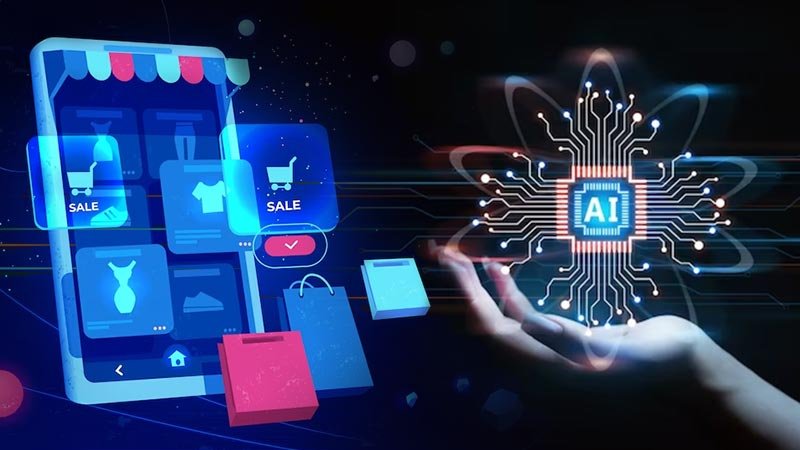Summary: In this Article, you’ll get to read about —
In today’s ever-evolving world of e-commerce and digital marketing, Artificial Intelligence (AI) and Machine Learning (ML) have emerged as game-changing forces. These groundbreaking technologies provide a wealth of opportunities for streamlining operations, enriching customer experiences, and honing marketing tactics. By embracing the power of AI and ML, businesses can gain a competitive edge and foster continuous growth in the dynamic retail landscape.
In this comprehensive guide, we will examine the diverse ways AI and ML are revolutionizing online shopping and marketing and explore how businesses can harness these cutting-edge technologies to realize their full potential.
Personalization and Targeted Marketing
AI and ML enable businesses to deliver highly personalized experiences to their customers by analyzing large volumes of data and identifying patterns and trends. This allows retailers to create targeted marketing campaigns that cater to individual preferences, driving higher engagement and conversion rates.
By leveraging AI-powered recommendation engines, businesses can offer affordable quality products tailored to a customer’s browsing history, purchase behavior, and preferences, resulting in a more engaging and relevant shopping experience.
Chatbots and Virtual Assistants
AI-powered chatbots and virtual assistants are transforming customer service and support in the online shopping environment. These intelligent agents can handle a wide range of tasks, from answering frequently asked questions to assist with product selection and facilitating transactions.
By automating routine customer interactions, businesses can improve response times, reduce support costs, and free up human resources for more complex tasks. Furthermore, these AI-driven tools can learn and adapt over time, resulting in increasingly accurate and efficient customer support.
Dynamic Pricing and Inventory Management
Machine learning algorithms can be used to optimize pricing strategies and manage inventory levels more effectively. By analyzing historical sales data, competitor pricing, and real-time market conditions, ML models can adjust prices dynamically to maximize revenue and profit margins.
In addition, AI-driven demand forecasting can help businesses optimize their inventory levels, reducing the risk of stockouts or excess inventory, and improving overall operational efficiency.
Sentiment Analysis and Social Media Listening
AI and ML technologies can also be used to monitor and analyze consumer sentiment on social media platforms, providing valuable insights into customer opinions and preferences. By tracking mentions of their brand, products, or competitors, businesses can gain a deeper understanding of their target audience and identify emerging trends or potential issues.
This information can be used to refine marketing strategies, improve customer service, and inform product development decisions.
Predictive Analytics for Customer Retention
Machine learning models can help businesses identify customers at risk of churn and take proactive measures to retain them. By analyzing customer data and behavioral patterns, predictive analytics can generate insights into the factors that contribute to customer attrition.
Armed with this information, businesses can develop targeted marketing campaigns and personalized offers to re-engage at-risk customers and improve customer loyalty.
Visual Search and Image Recognition
AI-powered image recognition and visual search technologies are enhancing the online shopping experience by enabling customers to find products more easily and intuitively.
By analyzing images and identifying key features, these tools can provide product recommendations based on visual similarity, making it easier for customers to discover new products and find items that match their preferences. This can lead to higher conversion rates and increased customer satisfaction.
Conclusion
Embracing AI and Machine Learning technologies in online shopping and marketing strategies opens up a world of opportunities for businesses to enhance customer experiences, optimize operations, and propel growth. Tapping into the capabilities of these advanced technologies can provide businesses with a competitive advantage in the fast-paced retail arena.
The key to unlocking the full potential of AI and ML lies in understanding their capabilities, remaining open to innovation, and continually seeking new ways to apply these technologies to drive business success.



